“We have the opportunity to make changes that weren’t possible a year ago”
So who better to discuss sustainability, lockdown lessons and the power of optimism than Lily Cole?
Photographer and Director Simon Emmett
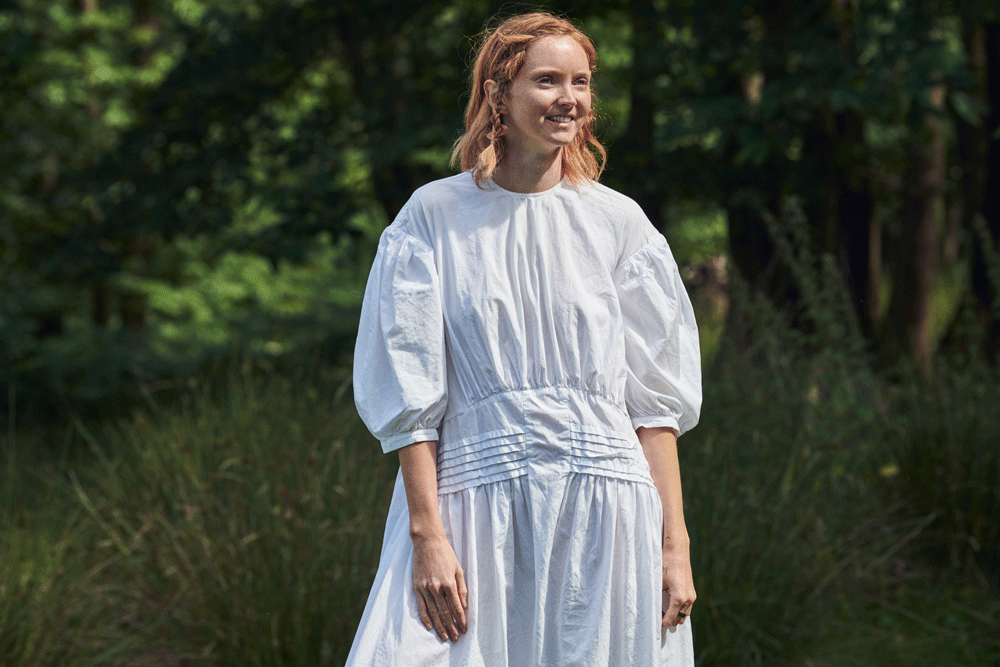
CREDIT: Dress by Simone Rocha
Introducing Lily Cole is no easy feat: model, actor, writer, entrepreneur, campaigner – take your pick. Luckily though, this powerhouse talent has never been one for being put in boxes.
Landing her first Vogue cover in 2004 at just 16, Cole was crowned the British title’s youngest ever star and catapulted to catwalk super status, walking for the likes of McQueen, Chanel and Louis Vuitton. So far so fairy tale. But ruling the runway was just the beginning. By 2007, Cole had moved onto acting and was soon starring on the big screen in St Trinian’s, The Imaginarium of Doctor Parnassus and Passage, all before graduating Cambridge University (where she landed a double first in History of Art, naturally).
So her latest project, Who Cares Wins: Reasons for Optimism in Our Changing World, should come as no surprise. Vocal about environmental and humanitarian causes from a young age, Cole’s passion for activism has been poured into every page, addressing weighty world issues from fast fashion to gender equality. Officially four years in the making, it’s a book close to Cole’s heart: ‘A lot of what I was writing I’ve been working on since I was a teenager,’ she says.
Now 32 and living with partner Kwame Ferreira and their daughter Wylde, who turns five in September, Cole is also utilising her entrepreneurship as a force for good, juggling an advisory role for Impossible (an innovation group she founded in 2013, with Ferreira as CEO) with running eco eyewear brand Wires Glasses (3D printing, zero waste), which she co-launched two years ago.
Modelling a pair of her own sustainable sunnies on our cover shoot (plus pre-owned outfits she sourced herself – no new outfits, thank you very much), it’s clear that Cole is a woman who puts her money where her mouth is. Here’s what she has to say on everything from embracing protest as a privilege to finding balance in a shifting landscape…
“There's a slightly disposable attitude to models”
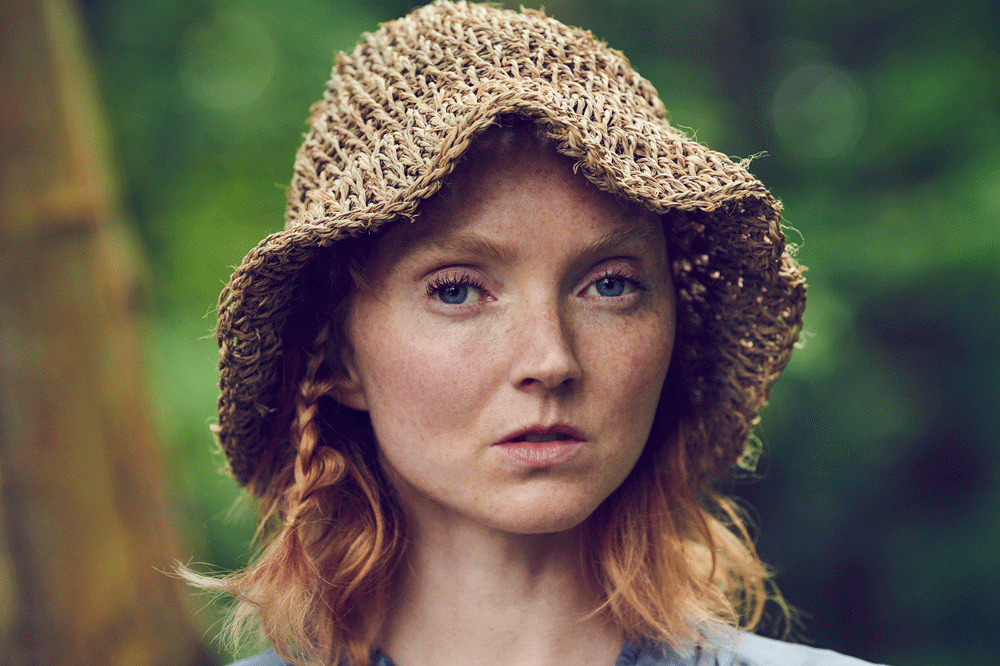
CREDIT: Top by Boyd, Hat Lily’s Own
How have you found these past few months?
‘I’ve been with my family in the countryside, so we’ve been really lucky because there’s lots of outdoor space. It’s actually been quite nice in some ways to slow down and spend time with my daughter. There have been times [when it has felt] quite stressful and uncertain, but I feel like I shouldn’t complain. It’s been a positive experience in a strange way.’
Many feel lockdown has prompted them to live in a slower, more conscious way. Have you felt this?
‘Definitely. I’m wary of what impact that will have long term and, of course, there are many different experiences – for some it’s obviously been more challenging than others. I wrote my book about slowing down, slow growth, and voluntary simplicity and I think by being really forced to stop I realised how much I needed to. There was almost an addiction to being busy.’
Has lockdown changed the way you work?
The days of going back to London a few times a week are over – I can now justify working remotely. I think trying to find a healthy work/life balance is really important. It’s something I still struggle with. I always overload myself so much with work.’
Perhaps the enforced pause has acted as a reset button?
‘Yes. There’s a possibility this crisis will give us the opportunity – personally, collectively and politically – to make big changes we wouldn’t have thought possible a year ago. I think it has the capacity to play out in a very positive way, but there’s a lot of uncertainty and we’ve already seen negative side effects. I’m hopeful we won’t let a crisis go to waste though, as the saying goes.’
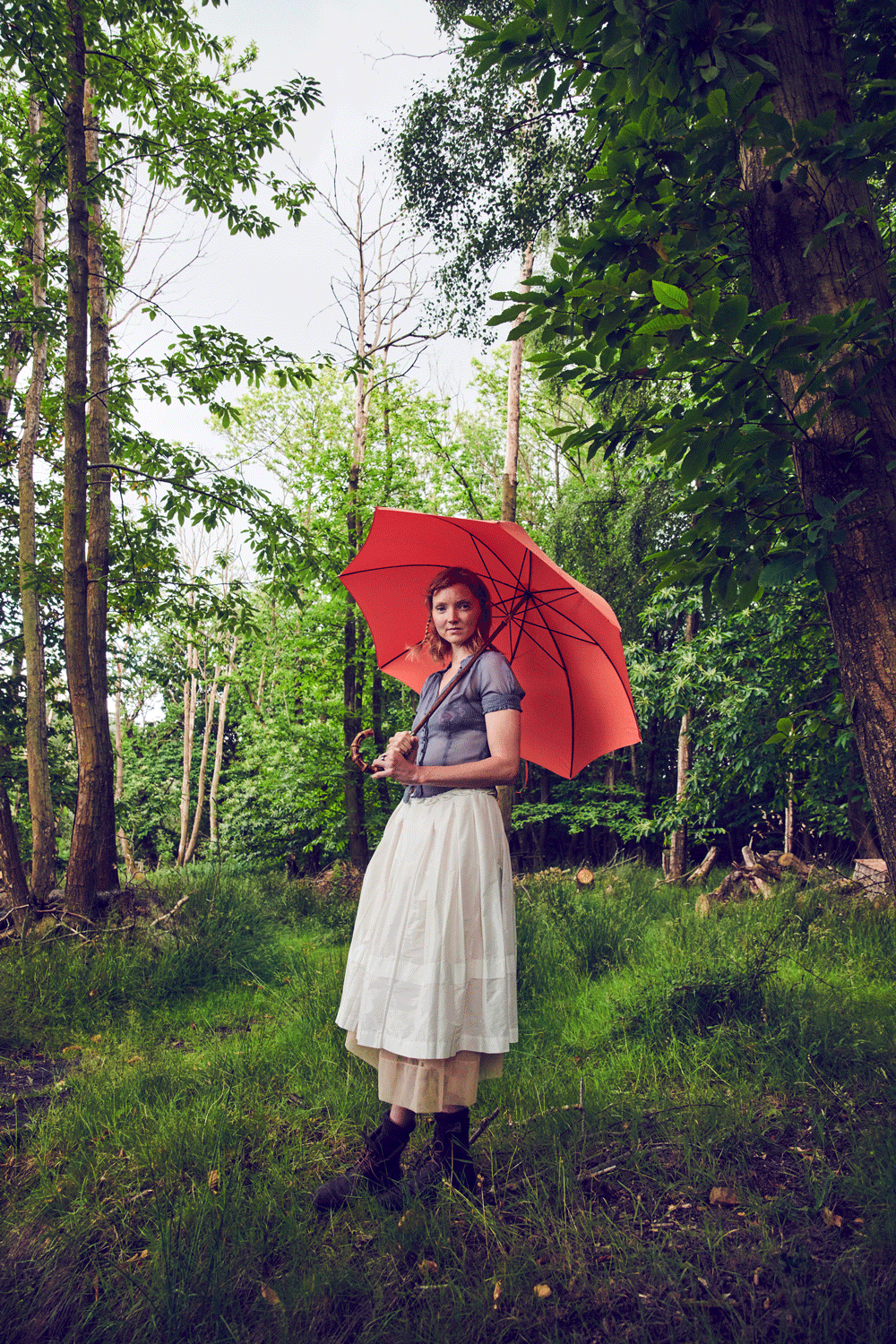
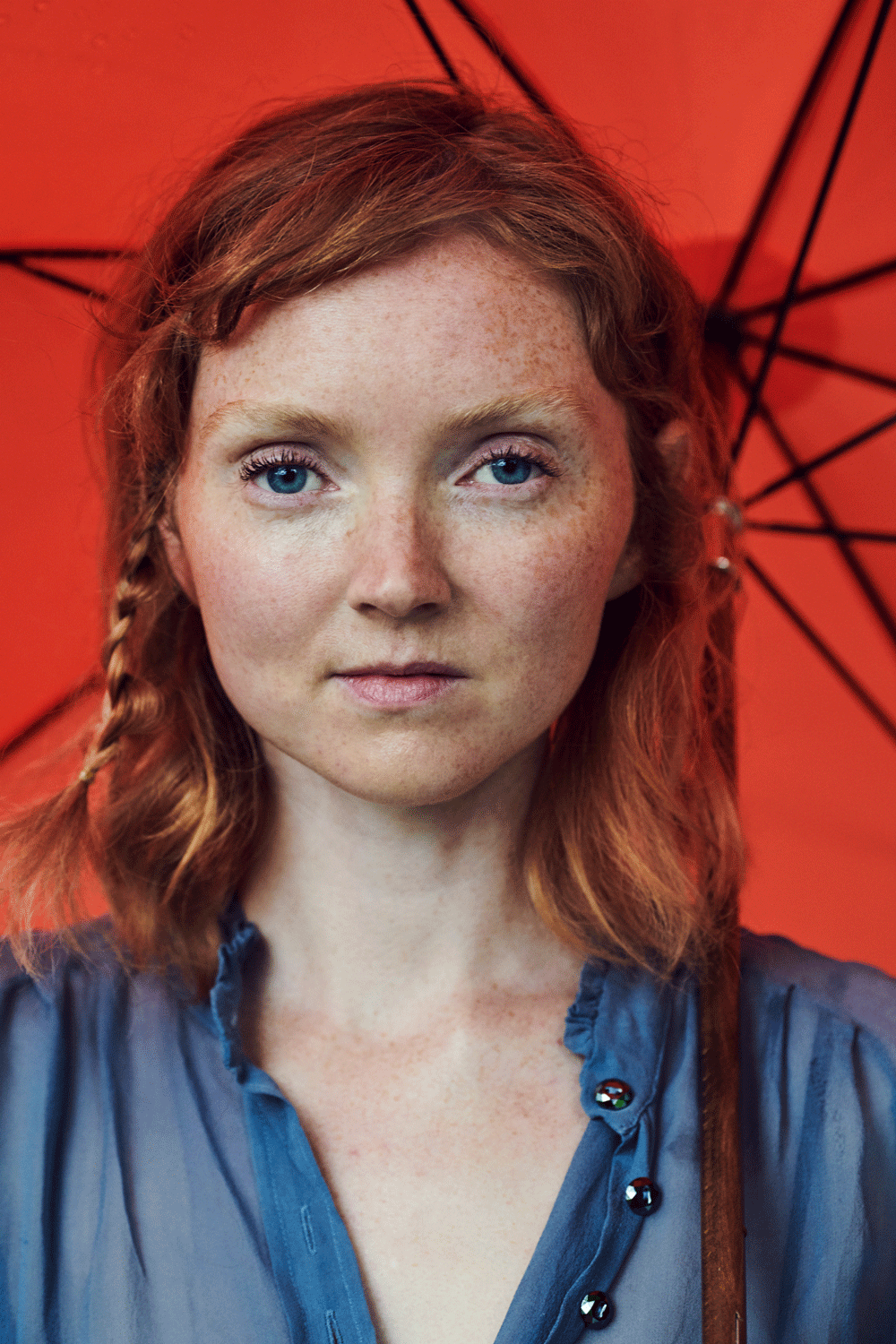
CREDIT: LEFT; TOP BY BOYD, SKIRT BY SIMONE ROCHA, BRA LILY’S OWN, VINTAGE BOOTS LILY’S OWN, UMBRELLA LILY’S OWN. RIGHT; TOP BY BOYD, UMBRELLA LILY’S OWN
As a model, you’ve always spoken out about injustice, even when few others did. Were you ever worried about it impacting your career?
‘It’s become much more fashionable to be an activist, which is no bad thing. But at the beginning I remember my agent being worried about me: “Aren’t you scared you’re biting the hand that feeds you by critiquing the fashion industry?” And it did have some negative effects in terms of how I was viewed by certain people in the industry. But, that said, I don’t think I really cared. What I was talking about was really important, so it was worth saying. The positive thing that has changed in the past 15 years is that the conversation around sustainability in fashion is no longer the niche, anti-fashion, hempy space it was perceived to be. It’s become much more mainstream and accessible.’
Men abusing their positions of power is a common story now. Is it something you were ever aware of working in fashion?
‘No. Industry standards weren’t always perfect, but it’s not something I personally ever had trouble with or experienced. I think there’s probably not enough protection, or at least there wasn’t in the fashion industry in terms of thinking about models’ mental health and giving models power to set their own boundaries in terms of what they’re comfortable shooting. There’s not really a strong union for models, so I think there’s a lot of work to be done.’
“It was important to wear clothes I already own for this shoot. This yellow piece was my Mum’s wedding dress - she’s kind of unconventional”
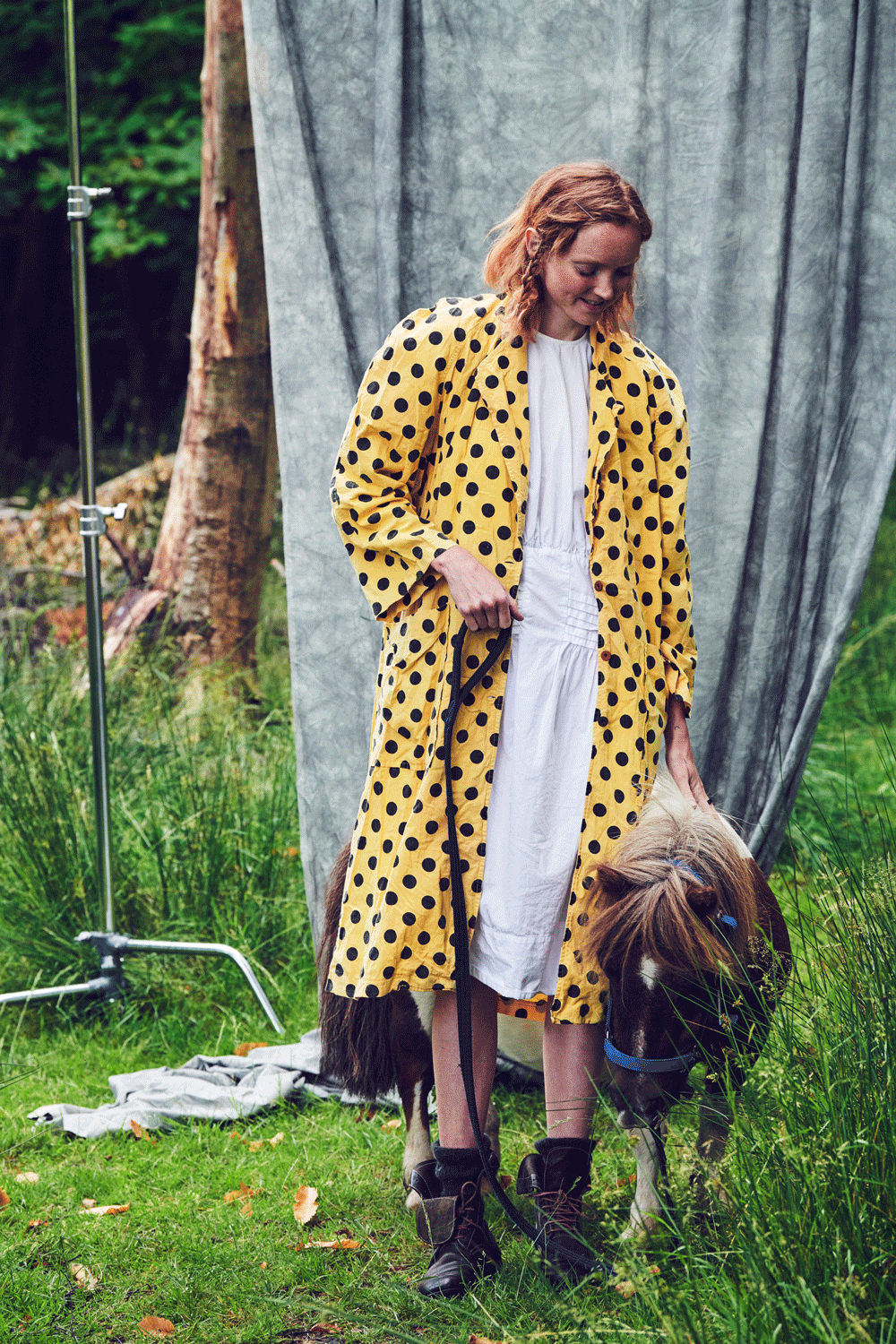
CREDIT: Dress by Simone Rocha, Vintage Dress Jacket Lily’s Own, Vintage Boots Lily’s Own
What would you change about the industry?
‘I think sometimes there’s a slightly disposable attitude to models where it’s like, who’s the new hottest thing? That can change quite quickly, in the same way attitudes change towards trends or colours, without necessarily remembering they are human beings and quite young human beings. But I don’t know how you fix that. Creating more job security for models, I guess.’
In your book you talk about protest being a privilege. Is that why you feel a responsibility to use your platform?
‘On certain levels, yes. When I started getting a public profile through fashion I felt more responsibility to use that platform and voice to bring attention to different causes. That said, I think everyone’s voice is important – for somebody who doesn’t have a public platform, their voice is just as important. Everyone should feel empowered to realise that. In terms of protest being a privilege, that’s just the reality. There are countries where you could be killed for being gay. So the ability for people in our communities, where it is legal to provide a voice for others? That’s important. And those privileges, it’s recognised historically, have often been wrongly earned.’
We are perhaps more aware than ever of injustices in our societies. Have you ever struggled with which causes to put energy behind?
‘No. When I was younger and I was being approached by lots of different charities, I felt a lack of focus because all causes have compelling reasons to support them. I think I have that focus now and feel more at peace saying no. But on a day-to-day level, I do think all these problems are related. It’s the culture and system of hierarchising people historically; those hierarchical systems have created many different versions of oppression – whether it’s the oppression of disabled communities, ethnic minorities, non-white communities, women or the environment. Part of what I’m looking at in my book is the intersection between different types of injustice, because I don’t think we can solve any of the problems without trying to solve all of them.’
“I needed to slow down, there was almost an addiction to being busy”
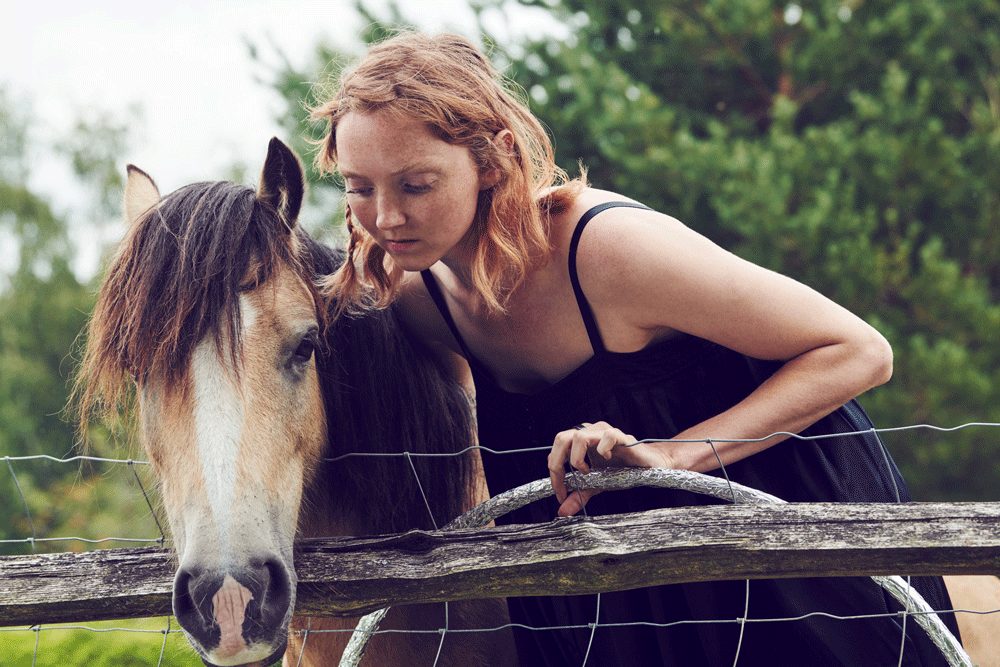
CREDIT: Jumpsuit by Marc Jacobs, Sliver Hula Hoop Stylist Own
“Our hierarchical systems have created many different versions of oppression – of disabled communities, ethnic minorities, women, the environment.”
Issues you campaigned for ten years ago are now front-page news…
‘It’s a bittersweet feeling because the reason it’s front-page news is because the problem’s getting worse. The threat is getting bigger and the science is getting more scary and that is galvanising more action and waking people up. But that sucks. Because we had the science and data decades ago to take action. It’s sad that it’s having to get so threatening before people wake up. That said, it has been really inspiring to see a mass movement around the environment rising up. It’s the same bittersweet feeling watching the resurrection of the Black Lives Matter movement. On one hand, it’s really upsetting because you’re very aware of how much of the problem has still yet to be solved in terms of systemic racism. At the same time, it’s positive because that was the same situation a year ago, it’s just not something people were talking about.’
How do you feel about raising your daughter in a world where climate change is so evident?
‘I have mixed feelings. Someone told me about this book called Ultimate Survival Guide For Kids. That gave me the heebie-jeebies because I want to fix these problems ourselves so we’re not creating this dystopian landscape for our children to navigate. That said, I’m 32 and already starting to see younger generations coming up with their own ideas. That feels really positive and I think it will be interesting to see how value systems shift with younger generations who have a fresh way of seeing the world. In my chapter on protest I refer to a Kahlil Gibran quote, in which he talks about children being the arrows that shoot off from our bows. I also think we need to listen to our elders because there’s a lot we can learn from generations who’ve lived through different experiences.’
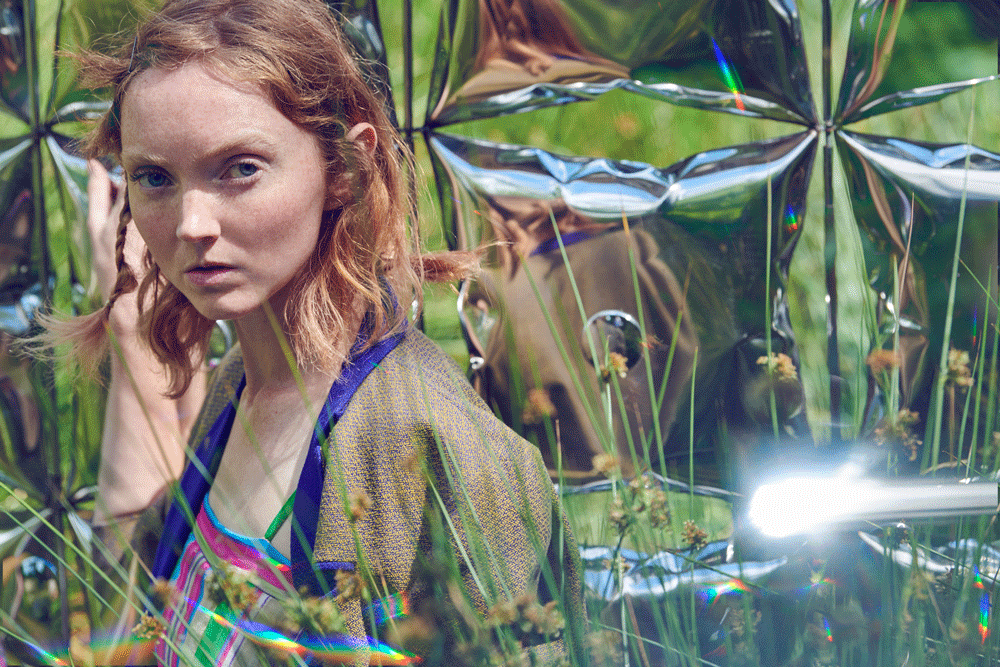
CREDIT: Vintage Dress by Christian Dior, Vintage Jacket by Pinto Sportswear, Stainless Steel Full Blown Screen by The Classic Prop Hire
“Being able to protest is a privilege...”
What were your own influences as a child?
‘I grew up in London. My mum is very creative and it was quite a creative household. We were always making stuff: making up dances, making cards, making cakes. I went to state schools that had this urban, diverse dynamic because London state schools tend to be much more culturally diverse, which had a positive influence on me. My mum was single and disabled, so that was probably quite challenging in its own way. But she did an amazing job raising two kids in very stressful circumstances.’
What sort of child were you?
‘I was quite an eccentric character, I think. That’s the vibe I get anyway, which probably means I could be quite demanding! My mum said I was very passionate. I felt things very strongly; I was passionately excited about things or happy, or passionately upset or sad… emotions were quite extreme.’
Its obviously held you in great stead, though.
‘Yeah I guess. I was quite geeky. I was really happy making things and [being] creative, but once I started going to school I was quite nerdy and wanting to read and study.’
So what’s next?
‘I’m bad at focusing, as my career might belie. I’d like to make more films – I really enjoy that process. I’m enjoying living in the countryside, but I think we’re going to move around more before we settle. At some point I’d love to settle enough to invest in the land, and have animals and grow vegetables. I’d love to get a piano and play more, too. It makes me much happier, but I just never find the time.’
Who Cares Wins: Reasons for Optimism in Our Changing World by Lily Cole is published on 30 July by Penguin Life (£20).
CREDITS
Lily Cole
Photographer and Director Simon Emmett at CLM Agency
Editor In Chief - Andrea Thompson
Creative Direction - Lisa Oxenham
Words by Sophie Goddard
MAKE-UP ARTIST ZOE TAYLOR AT JAQ MANAGEMENT USING TINKER TAYLOR AND NEAL’S YARD REMEDIES
HAIRSTYLIST TYLER JOHNSTON AT ONE REPRESENTS USING KIEHL'S STYLIST SERIES CREME WITH SILK GROOM AND NEAL’S YARD REMEDIES
Video Editor Ant Shurmer
Production Assistant Sarah Barnes
Photography Assistant Tom Frimley
Photography Assistant Oscar Eckel
DESIGN BY DAVID GRAHAM, OLIVER BOURNE AND ANA OSPINA
In Partnership with Neal's Yard Remedies
Celebrity news, beauty, fashion advice, and fascinating features, delivered straight to your inbox!